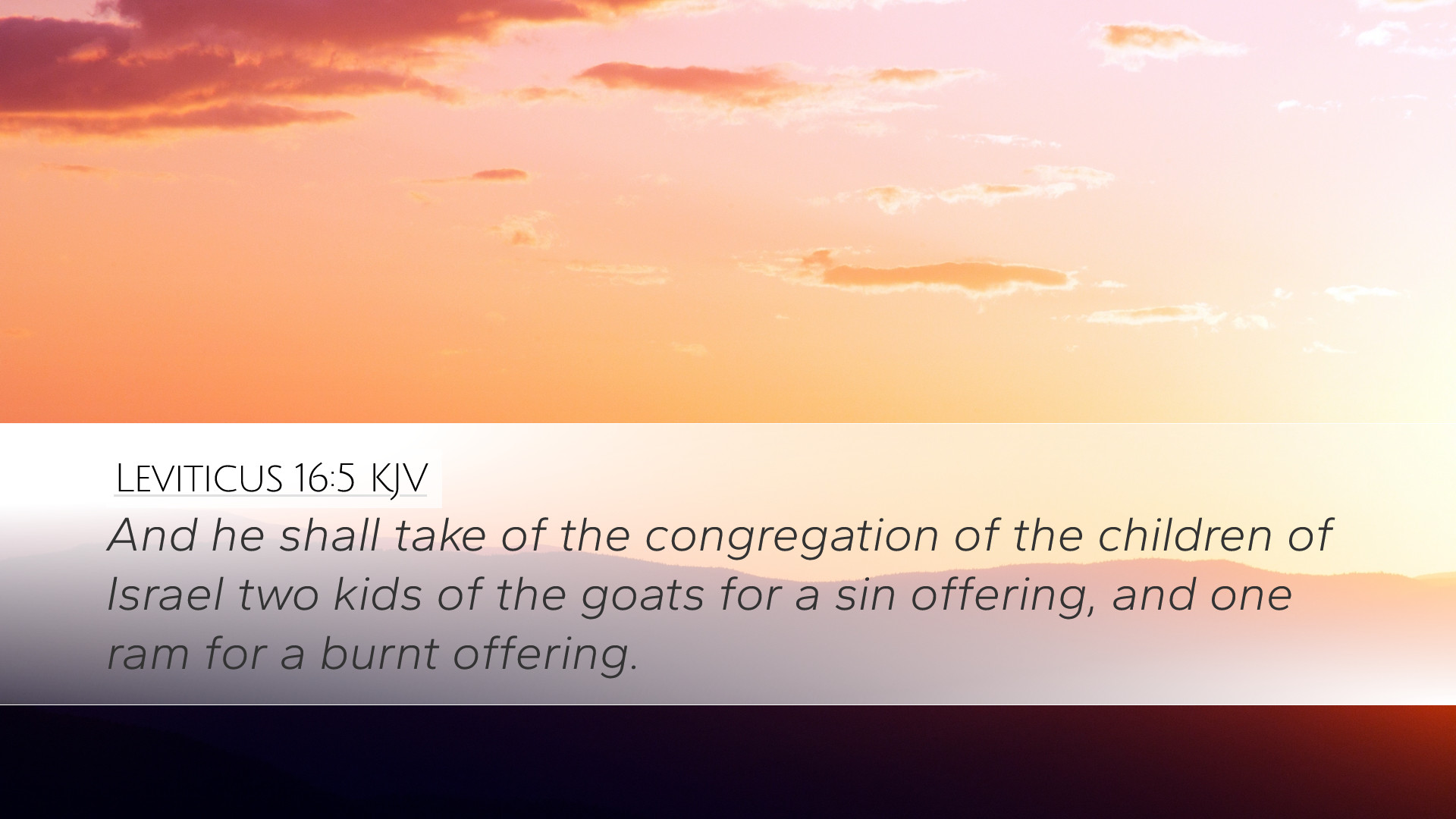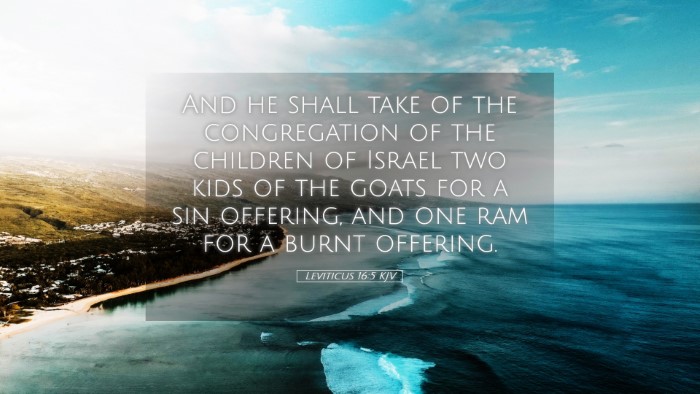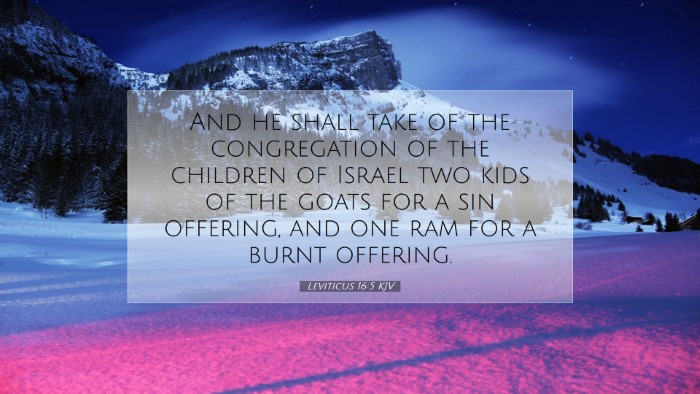Bible Commentary on Leviticus 16:5
Leviticus 16:5 states:
"And he shall take of the congregation of the children of Israel two kids of the goats for a sin offering, and one ram for a burnt offering."
Introduction
This verse introduces the preparations for the Day of Atonement (Yom Kippur), a significant event in the Jewish calendar and a critical practice in the Levitical system of worship. It highlights the necessity of sin offerings and the roles of various sacrifices in the atonement process.
Exegesis of Leviticus 16:5
The elements of this verse point towards fundamental themes of atonement, substitution, and communal responsibility.
The Choice of Sacrifice
According to Matthew Henry, the selection of “two kids of the goats” signifies the adequacy of the sacrifice in addressing sin. Goats were common and, in this context, represent scapegoats, which symbolize the burden of sin being transferred away from the people.
Albert Barnes adds that the choice of these animals underscores the concept of innocence and purity as prerequisites for sacrifices intended to atone for sin. The animals had to be without blemish, emphasizing the seriousness with which the procedure was to be undertaken.
Significance of Community Involvement
The phrase “of the congregation of the children of Israel” calls attention to community involvement in the atonement process. Adam Clarke emphasizes the communal aspect of the sin offering, indicating that atonement is not just a personal responsibility but collective as well. The congregation recognizes their shared iniquity and seeks collective absolution.
The Role of the Ram
In addition to the goats, the ram mentioned in this verse is designated for a burnt offering. Matthew Henry notes this signifies the need for a total dedication to God, implying a complete offering of the life of the ram as an act of worship. The burnt offering indicates that the worshiper is wholly committed to God’s service.
This further demonstrates the relationship between sin offerings (for atonement) and burnt offerings (for devotion), showing that atonement leads to renewed commitment to God.
Theological Implications
The theological implications of this verse are profound, as it sets the foundation for the understanding of atonement in the broader biblical narrative. Leviticus 16:5 serves as a precursor to the ultimate sacrifice of Christ, where He becomes the perfect sin offering for humanity.
Sin and Atonement
In biblical theology, sin creates a separation from God, thus necessitating atonement. Albert Barnes posits that this practice reflects the seriousness of sin and the comprehensive measures taken by God to restore fellowship with His people. This establishes the need for blood sacrifice – a theme that runs throughout both the Old and New Testaments.
Symbolism of the Sacrifices
The goats in this passage symbolize both payment for sin and the burdens of sin being carried away. Adam Clarke expounds that such a practice foreshadows the work of Christ, the Lamb of God, who carries away the sins of the world. This connection intricately ties the Old Covenant practices to New Covenant revelations.
Practical Applications
As we apply the teachings of Leviticus 16:5 today, several principles emerge for pastors, theologians, and scholars:
- Recognition of Sin: Regular acknowledgment of personal and communal sin is essential in the life of a believer. It invites the grace of God and the community to join in prayer and repentance.
- Value of Sacrifice: Understanding the cost of atonement fosters a deeper appreciation for Christ’s sacrifice. It stimulates worship and gratitude among believers.
- Importance of Community: Engaging with the community in shared worship and acknowledgement of sin promotes unity and spiritual growth within the church. It highlights that while individual sins affect personal fellowship with God, they also impact the larger body of Christ.
- Commitment to God: The burnt offering symbolizes the need for total dedication to God. It challenges believers to consider their lives as living sacrifices, wholly devoted to His service.
Conclusion
Leviticus 16:5, while historical and ceremonial in context, offers rich theological insights that resonate with the entirety of Scripture. From the practice of sacrifices to the larger narrative of atonement, this verse serves as a bridge linking the practices of ancient Israel to the fulfilling work of Christ. Pastors, students, and theologians are encouraged to delve deeper into this rich text to understand its implications for faith and practice in the modern world.


